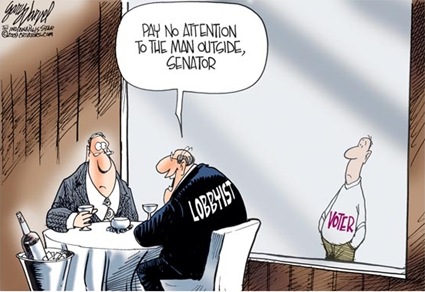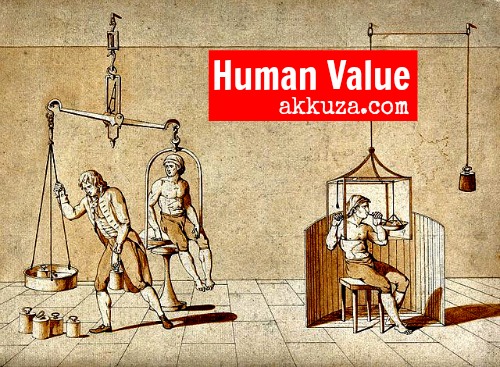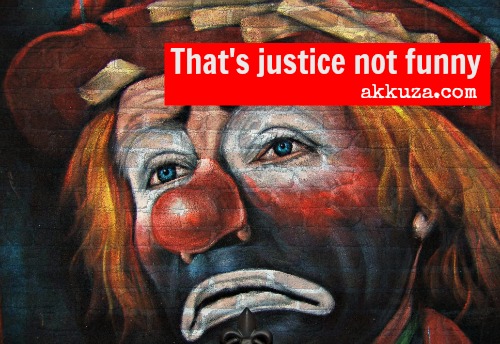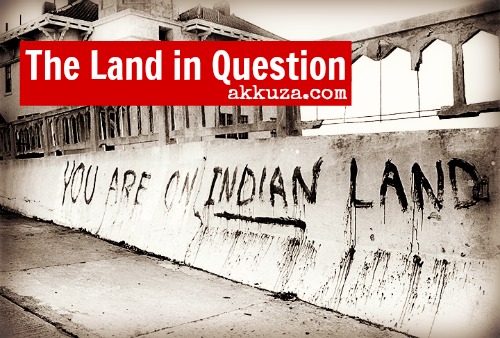In the UK they had Brexiters and Remainers. Malta has its Believers and Deniers… though having said that it is more of a case of Believers and Believers … as the Maltese saying goes… to each his god. #faithpolitics
Category: Politics
Why fund?
I have a genuine question to put to all political party activists in Malta. In the light of recent developments directly linked to political party funding I believe that there is a fundamental question that must be cleared even before we start to ask other ancillary questions such as how, when, who and what. It’s about funding really – we are currently, and have been for some time, engaged in extreme scrutiny of the movement of monies in power circles. From the unmeritocratic engagement of personnel by government (which is in itself a way of moving monies and funding) to the awarding of public contracts, public permits and the like (also movement of monies and value for consideration) to the direct “investment” of monies into political parties, the whole business of funding is intricately related to questions of power and influence.
Ideally and hypothetically speaking of course the role of political parties is to represent given sets of values that are then elected to power in the form of representatives who in turn will “govern” the nation (or scrutinise the government) in the name of the people and using the measure of such values. Arguably, the whole matter of funding should be intricately linked to the issue of keeping such entities as are political parties afloat for the very purpose of achieving their goals of representation. Arguably.
Broadly speaking funding should fall into two large categories. Firstly there is the ensuring of the day to day existence of the political party so that it can achieve its aims. Secondly, it is universally acknowledged and accepted that a Campaign Fund during election periods is needed in order for said parties to forward their cause and “sell” their ideas to the people. Beyond that though, there is no reason why parties should evolve into behemoths running costs in the millions and needing constant injection of funds. That our two major parties in Malta have evolved into such behemoths is proving to be a running disaster. The more the monster needs funds to feed its existence the more the fine line between interests, power and funding is broken. The defence that “donations are there to ensure representation” comes crumbling down when you see how the parties have also evolved to depend on periods in “power” in order to enable “investors” to cash in their cheque.
By investors I do not only mean the order of businessmen who seem to think that they can buy their way into power (mostly, incidentally, contractors) but also providers of services who will expect the party to repay them if not in cash then in kind. The classic example is how a large part of any party’s apparatus is shifted onto the public purse once that party gets elected into power. Whether it is as persons of trust or as employees of para-statal entities such as the public broadcasting this has been a natural consequence of the party power and money broking methodology.
The question I want to ask (I am not holding my breath of course) is the following:
Why do our parties need funding? What is the justification for funding on a daily basis (outside campaign mode of course)? What is the real cost for a party to do what a party is meant to do i.e. formulate policy and develop it?
More than words – Ken Clarke on Brexit
Occasionally a landmark speech turns up in the House of Commons. Ken Clarke’s speech during the Brexit debate on the 31st of January is one of those. A lesson in democracy, representation and history it is a breath of fresh air in a world of fake news and alternative facts. Sadly it seems like politicians like Clarke are a dying breed.
Human Value
The Authorities (capital A) have decided that the status known as Temporary Humanitarian Protection N(ew) – THPn in short – will no longer be renewed for what seems to be hundreds of migrants living in Malta. You may have seen stories in the press by now about Malta-born kids to Eritrean families who face imminent deportation thanks to such a decision. It does not matter whether these families are gainfully occupied, whether they are fully-paid up on their taxes and whether they have somehow integrated into our way of living – none of the above matters – they will not have their THPn renewed and this will mean their being sent back wherever they came from (if possible).
Prime Minister Muscat is quoted as having said that “We would have no credibility with the EU if, after we have been insisting so much on the country not being able to take in immigrants, we fail to repatriate immigrants who have been found to be here illegally.” It’s a matter of credibility then. There is already a bit of a fallacy there since the issue of legality had been dealt with pretty superbly under national sovereign law with the creation of this TPHn system – it is now, and only now, that the labour government has decided to change this state of affairs in line of the winds of change propelling the likes of Trump to the seat of power. Also, after all, the nation holding the rotating presidency of the EU must lead by example no?
There is a deeper issue at play here though. This is not your normal immigrant/refugee situation that falls under the black and white category of whether a nation is willing to take on the “burden” of life saving. The deeper issue is the value that we attach to humans – the human value – in our political field. If these were just souls wandering in on a dinghy and waiting the cynical sorting that goes on in such situations it would be a “simple” immigration issue. Instead we have discovered that these carriers of THPn permits might run into the hundreds (a very conservative estimate would be around 600). Most of them have settled in one way or another and are earning their bread in gainful employment
Suddenly the mass deportation of a substantial figure of Malta’s working population has direct consequences on the economic market. The more cynical among us might not have batted an eyelid when it came to deporting individuals straight off their dinghies of death. Instead we saw genuine concern by employers of these people who are set to live in a short limbo of uncertainty that will culminate in a loss of employees. This is not some trumped up figure of record unemployment thanks to an incucio between the GWU and government magicking thousands off the record books. These are real employments that risk being wiped off the fragile Maltese markets – and funnily enough it might finally give Maltese society as a whole a reason to care.
This news comes at a time when the Nationalist Party is trying hard to attract what we used to call SME’s to the fold with new taxation incentives – for those who behave a 10% tax. Numbers and money all seem nice as the PN and the PL vie for the title of champion of the businessman. With the party in government selling off anything they can get their hands on, the PN opted to champion the middle ground in business terms and good for it.
What happens now though when the two parties notice that this move of cutting out completely the holders of the THPn will end up with a huge gap in the employment market that will not and cannot be easily replaced? Will we finally see some value in the humans that they are because they can be quantified as real contributors to the economy? Will we be cynical enough to take a step back (in the case of government) or champion their cause (in the case of the opposition)? Or are the winds of Le Pen, Trump and Geert Wilders too strong for comfort?
« Considerate se questo è un uomo
Che lavora nel fango
Che non conosce pace
Che lotta per mezzo pane
Che muore per un sì o per un no. »
– P. Levi
On the day that Labour’s former deputy leader Toni Abela and former Gozo party president Grazio Mercieca joined the judiciary, Chief Justice Silvio Camilleri warned against bashing and ridiculing judges and magistrates. There is no doubt that the judiciary is not a sector of society that should be basking in permanent ridicule or “bashing”, if anything the judiciary should be deserving of the utmost respect what with its being one of the main pillars of a modern liberal democracy. That the Chief Justice would parry any bashing and ridiculing in advance goes a long way to show the state of the judiciary today notwithstanding the much vaunted reforms that, according to the claims of many paladins of democracy, are supposed to have made judicial appointments a much more transparent and balanced exercise.
The problem though is that one cannot expect from a government that has not got the least respect for the concept of meritocracy to suddenly change its tune when it comes to a particular branch of appointments. Worse still these appointments might be asked to hold that very government accountable in the near future and we all know the allergy that this government has for accountability. Maybe, just maybe, the Chief Justice’s appeal not to further ridicule the judiciary was a subtle plea to the government itself to stop the tomfoolery of blatantly biased appointments.
Franco Debono may end up copy pasting endless links to his Quixotic exercise of “pushing in a reform against all odds” but the sad truth is that the patchwork set of changes have not in any way changed the way such appointments are made and the interests that are underwritten in this sense.
“Ridiculing” and “bashing” the courts is one way of putting it. Another would have been to ask the press to renege on its duty to highlight the anomalies and conflicts of interest that are being served here. It would take a Donald Trump to ask a drama troupe to refrain from “offending” a vice-President with their opinion… I am quite sure that Chief Justice Camilleri would have none of that.
Donald Trump is set to revolutionize the balance in the US Supreme Court thanks to the next nominations. It is part of the way the US Constitution is set and a consequence of the liberal vs conservative divide. The “jerrymandering” of the judicial balance in Malta is not a constitutional requirement but rather the abuse of an anomaly that has not been corrected. In fact it goes against the very spirit of the constitution.
Unfunny business indeed.
“(Finally), in the early morning hours of November 20 (1969), the fourth attempt coalesced and more than 90 Native Americans landed on Alcatraz. The island’s caretaker, Glenn Dodson, who was 1/8 Cherokee, told the landers that they were trespassing, winked, and then showed the landing party to the warden’s house. It was there that the occupiers established their headquarters.” (History Nuggets).
In the mid-eighties Manoel Island was our playground. Wednesdays – days off from the disciplinary jesuit school – were days of adventure and roaming. “We” were a band of urchins from the greater Sliema area spanning from the Gozitan in Paceville to some guys from Fond Ghadir, Tigne and some even from the point where the barrier between Sliema and Gzira becomes murky (Gzira would have been “other people”). Cursorily vetted by our parents it was “kosher” for us to hang out together and hang we did making the land stretching from Pembroke to Valletta our realm that we would shuttle around in on wide skateboards or hitching rides on buses.
Ruins. Desolation. Abandoned buildings. They were the disneyworld and playstation of our day. We did not hunt for pokemons or ride the rollercoasters in some luna park. We went to the crumbling villas on the QuiSiSana waterfront, we rode our skateboards blindly down the lanes of Pembroke from El Alamein to Juno and Tunis. We “explored” the barred gates of Australia Hall and braved the dangers of mad dogs that could be unleashed any moment by caretakers or “residents” of some of the ex-army houses that had been reclaimed thanks to Mintoffian concepts of public good. We were known to have raided the vast desolation that was the Gzira Stadium with it’s jungle like growths, corrugated iron mazes and leftover mementos.
Most of all though we owned Manoel Island. Nobody knew it at that point but a band of young twelve year olds were the actual rightful owners of the island named after a grandmaster. Crossing the bridge onto the island was an act of liberation from the mundane boredoms of everyday life. Once we were past the turnstiles of the old stadium (the one on the island not the one in Gzira) we knew we were back in our land. There were ramparts to be climbed using rudimentary ropes (purchased at the Sunday Monti along with all the army surplus we could find – diligent kids were we), there was an abandoned hospital to be inspected from top to bottom, there were miles of tunnels to be walked through with trepidation and a faulty torch. There was also the actual fort guarded by the usual token army of rabid dogs but nothing was an obstacle to our water war games and camping exploits.
Safety was never the question. Nobody in his right mind would let their kids run the whole gamut of risk-taking actions nowadays. Neither, had they known, would our parents ever have allowed us to roam the land of used syringes, satanist relics and rusted obstacles. The used syringes were the marks of a burgeoning addict community that used the abandoned zone for their needs away from the prying eyes of the public. The “satanist” marks deep in the bowels and tunnels under the fort were also the clues of life away from the public – a pentagram here, a box of candles there. Some crazed fools doing their trendy thing as some were wont to do in the 80’s – and scaring the living bejeezus out of the teens exploring the tunnels like some a latter day Famous Five minus the ginger beer.
Pembroke, Saint Andrew’s (including Saint George’s Bay), the stretch of land behind the Hilton, Qui-Si-Sana, Tigne’ and Manoel Island. Their time in the eighties was a time of desolate abandonment. Beyond the point where the old ITS school used to stand was a vast stretch of rough land and a bit of asphalt. It was an alternative point of gathering to Ta’ Qali for those football-loving fathers and sons who gathered religiously on Sunday afternoons – the fathers to listen to Serie A on radio and the sons to form a myriad of football matches until the four o’clock siren call to turn back in for a hot shower and supper.
Bit by bit each of these fantastic zones would be imagined away by some architect closed in a room where he “designed” his latest project while surrounded by fake trees ready for the to-scale model that he would pitch to the businessman in whose hands one would find the most flexible politician or party with the least amount of spine possible. We all know which way Australia Hall went. We have seen the battle for foreshore access around (ex-Hilton) Portomaso. We have sat and watched while the coastal path around Saint George’s Bay becomes a nostalgic memento. We have seen the old Qui-Si-Sana turn into an unrecognizable monster and Tigne point is … well it’s Tigne point.
The coalition of local councillors and activists that have put their foot down on the matter of Manoel Island and access thereto are a welcome breath of fresh air. In this here age of post-truth politics it is becoming harder and harder to get people to understand how much political decisions actually affect their rights – especially when their rights are not so easily tangible. Much of the problems of corruption in today’s politics have not sunk in for many of the voters and citizens – mainly because they can be fobbed off with words and spin.
Access to the foreshore, access to a park, to open air to clean public spaces. Now that is tangible. It is the ideal first building block to recreate a socially active part of the populace that finaly has had enough of being told what can or cannot be done for and with the public good.
Well done Kamp Emerġenza Ambjent. That is a well done that cuts through the ages. It comes from a band of kids whose skateboards scratched the pavements all along the Front, who marked their time with Swatches and whose day was made when they found an extra bit of strong rope that would let them climb that extra bit of metres onto the rampart outside the fort where they would sit and watch the crazy society far way in its rushed madness to an ill-conceived idea of progress.
Grazzi KEA.




